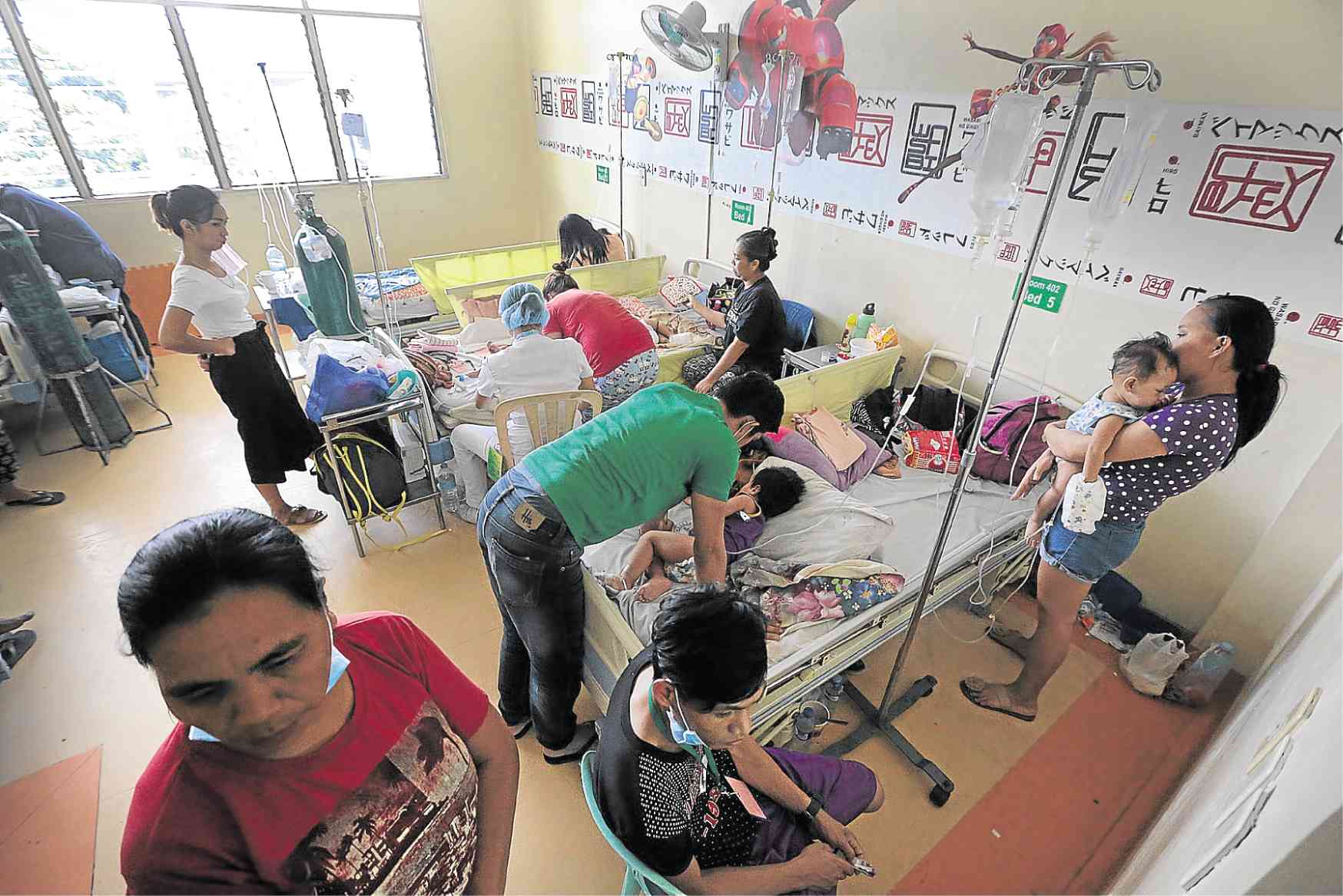
Children with measles are confined at San Lazaro Hospital. INQUIRER FILE / GRIG C. MONTEGRANDE
MANILA, Philippines – In just more than a month, over 4,000 people have contracted measles with 70 people reported deaths because of the disease, the Department of Health (DOH) said Monday.
Data from the DOH Epidemiology Bureau revealed that there has been a total of 4,302 measles cases with 70 fatalities from Jan. 1 to Feb. 9 this year.
The DOH noted that 79 percent of those who died from measles, whose ages ranged from one month to 31 years old, had no history of vaccination.
Meanwhile, the ages of those who were affected by measles ranged from one month old to 75 years old, with 34 percent of the cases were one to four years old and 27 percent were less than nine months old.
The DOH noted that 66 percent of those who were affected by measles had no history of vaccination against the said disease.
The National Capital Region recorded the most reported cases with 1,296 cases with 18 deaths, followed by Calabarzon with 1,086 cases with 25 deaths.
Meanwhile, Central Luzon registered 481 cases with three deaths, Western Visayas with 212 cases and four deaths, and Northern Mindanao with 189 cases and five deaths.
The DOH recently declared a measles outbreak in Metro Manila, Central Luzon, Western and Eastern Visayas.
READ: Measles outbreaks in 4 more regions
READ: Measles outbreak in Metro Manila — DOH
READ: DOH raises measles ‘red flag’ in more regions after NCR outbreak
The DOH said that the recent measles outbreak in parts of the country could be attributed to vaccine hesitancy among the public.
“The causes of measles outbreak involved a number of factors or elements. Loss of public confidence and trust in vaccines in the immunization program brought about by the Dengvaxia controversy has been documented as one of many factors that contributed to vaccine hesitancy in the country,” the DOH said in a statement.
It noted that mothers became hesitant to have their children vaccinated even though the vaccines were long-proven to be effective.
The DOH cited a World Health Organization (WHO) study in 2018 which identified reasons for not bringing children for immunization in Metro Manila.
The top reasons were: “fear due to Dengvaxia, and the lack of time among households,” the DOH said.
The health agency said that it has been conducting vaccine activities against measles in several regions.
“I appeal to the public to rebuild your trust and confidence in vaccines that were long proven to be effective, and I am quite sure that all of us sometime in our lives have been recipients of these vaccines which had protected us from various diseases,” Health Secretary Francisco Duque III said. /cbb